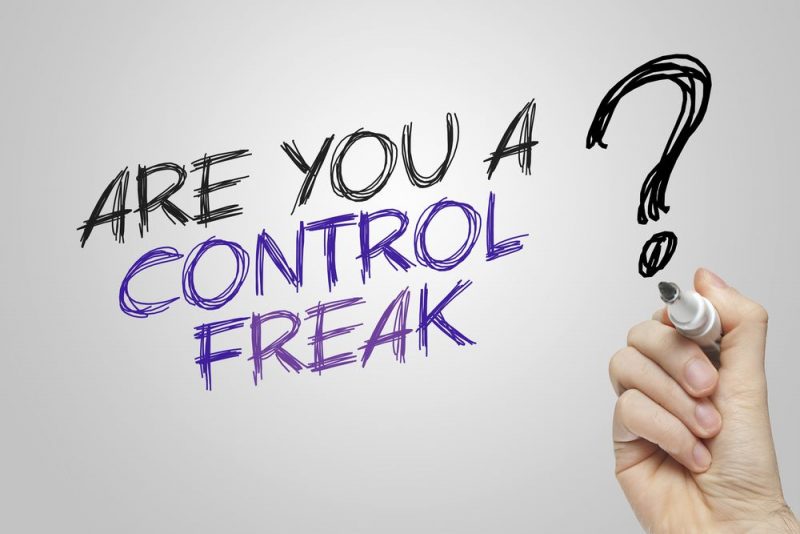The Hijab Diaries
Are British Muslim Parents Getting It All Wrong?
One of the greatest challenges Muslim parents will ever face is being a parent. No Muslim parent is ever prepared for it. We will be looking at a scenario and discuss based on that.
Abdullah’s son has just hit his teenage years. Abdullah is too busy to give time to his children, he is busy juggling two jobs which he feels can help secure his children’s future. Abdullah’s wife is from Pakistan/Bangladesh/India/Algeria/Egypt. She doesn’t know much about western society but she has a strong line drawn on what is right or wrong. She gives time to children but she cannot connect to them.
Their children are growing up and with this comes a host of problems. Suddenly his son, Asim is into girls, likes to watch pornography and thinks he’s cool because he has joined a gang. Of course, Asim was shouted at, disciplined and told he will be kicked out of the house soon, if he didn’t get his act together. But are these types of actions solving the pain points of parents or is it just making kids worse?
Contents
Society’s Impact on Teenagers
in the western world, Muslims are faced with all sorts of sins (fitnah) and teenagers are attracted to these temptations. More so, because of peer pressure. It is often easy to lay the blame on society and peer pressure, but is that fair?
In a world where money has become important children are often being neglected. As Muslim parents, we must teach children from a young age and give them a sound upbringing differentiating between right and wrong.
Going back to Asim, restricting him from seeing his friends without giving him time won’t stop him from knowing wrong or right. He has made his friends and feels like they care for him. But what exactly are the problems being faced by teenagers such as Asim?
Pornography
In today’s world, young people, especially young men are under constant pressure to conform to norms of society. They feel the need to validate their manhood through open sexual behaviour. With pornography so openly available and sex being so tempting, young boys (and young girls) turn to pornography. Watching such shows leads to masturbation which is seen as haraam by many scholars.

Those who guard their private parts except from their spouses or those whom their right hands possess, for them, they are free from blame. But those who crave something beyond that, are transgressors.”
[Qur’an 23:5-7]
However this is a problem that exists and shouting and screaming at your child that it is the wrong behaviour, or hitting him and punishing him will not solve the problem. From his point of view, your overreacting and should not be entering his personal space.
Children should be taught about sex by Muslim parents at home so that they are aware of it when they go into the outside world. Hiding them away from it in western countries just means they will find out about it in other ways which will be way more harmful. They will then see it has something exciting and forbidden but has no explanation as to why it is not allowed.
Crushes
As Muslim parents, it is important to be aware everyone goes through crushes. You did too. You will look at a girl/boy and you will fancy them. It’s, unfortunately, a part of life. It’s the acting out that becomes a problem in the majority of cases.
Teenagers should be told from a young age that it is natural to feel desire for the opposite sex but at the same time they need to be taught to lower their gazes. Finding out your child has a crush or has been flirting with a girl and then punishing him for it will only make him more rebellious.
Gangs
It has become quite common, especially for boys to join gangs to look and feel good. They think suddenly they are tough if they are a part of the “gang”. This then leads to taking part in drugs, sex, knife crime or fights.
The “gang” becomes your family. In the case of Asim, he was never allowed out with his mates, so he decided to take things into his hands. From a young age, if he wanted to go over to friends, if he wanted to play football in the park, he was told he couldn’t go. Controlling or protecting your child and not allowing them to interact with other friends can lead to resentment. Being constantly told what they cannot do eventually tires teenagers and they try to break out.
Consequences of restrictions
Forcing him to stop hanging with his friends without spending time with him, without teaching him the difference between wrong and right will only make him more rebellious.

In the case of Asim, he eventually became involved in knife crime. Hanging with boys older than him by several years, he felt they were his “boys”. They were getting involved in fights over girls and eventually fights included knives and weapons. He finally got caught, expelled from school and investigated.
Gangs and knife crimes aside, If you, as Muslim parents restrict teenagers from things they see their friends doing without explaining to them what is halal and what is not, they will rebel and be disobedient. Fathers should value the time they have with their sons, be a close companion to them, keep in tune with what’s going on in the environment their kids are exposed to and keep an Islamic environment in the home. Mothers should do the same with their daughters. It is important as Muslim parents to connect to your children.
One of the things that was said by Mr Thomas in the BBC is that “one of the common denominators kids involved with gangs have; the lack of a father figure” In Asim’s case, his father is out worried more about earning money and ensuring his future and his children’s financial future is secured more than their safety and ensuring they are on the right path.
Where are Muslim parents going wrong?
1. Lack of communication and connection
There is often a lack of communication between children and their Muslim parents. Sometimes it is due to the mother being from back home and the father being the UK born and bred but leading a busy life. In the case of Asim above, the father is handling two jobs, the mother is also working part-time and wants the child to take responsibility himself. Both parents are frustrated that he does not listen and spends his time in idle stuff.
The mother may not understand the dynamics of western society, but the father does. Unfortunately, the father has no connection with the son. Therefore when he tries to discipline the child it doesn’t work. Going to work and coming home, you find out your child has been misbehaving or doing the wrong thing. Your reaction? To either tell him off, severely punish him or hit him. Neither of these things will work because you’re never there in the first place to talk to him.

Another interesting example in Asim’s case is, praying. Abdullah wants his son to pray 5 times a day and go to the masjid. But he is at work and hardly ever goes to the masjid. Yet he expects his son to do it. Why would he? He sees his dad is being hypocritical and not doing it himself. Change the scenario to where Abdullah does go to the Masjid, but he takes his son with him. One he is connecting with his son and two he is opening up communicating channels for the future. But it shouldn’t just be the Masjid that he goes. He should be spending time with his son and doing things that are enjoyable and halal with him too.
Why is this happening?
The biggest problem in most households is that when adults communicate with their children they are not talking to their children but talking at them. What happens here is the child just hears you badgering at him and it goes in one ear and out the other.
When communication is used to listen and understand it becomes a good way to communicate with children. Shouting and telling your child what to do just means they will go to their peers. This also teaches children valuable problem-solving skills. They learn to deal with problems together and to talk through them. Sometimes it is a good idea to talk about your situation and tell children what you have gone through. It helps them to see the bigger picture.
2. Competition and comparison
Prophet Muhammad said: “Look up to one who is greater in piety so you strive to be like him and look upon one who is below you in material status so that you may be thankful to Allah’s Grace”.
Unfortunately, a lot of the times Muslim parents are competing with other parents. They also not only make their children compete against other children but each other as well! There is nothing wrong with the occasional competition, but constantly belittling your son and making him feel dumb just won’t help. Instead, it leads to resentment and anger.
Telling him so and so is going to become a doctor and taunting him for his choices won’t fix him. You’re just helping him continue with his behaviour. This constant breaking down of their self-esteem will not help. They will just look outside to get validation for their behaviour. What’s more, along with hurting their self-esteem you have effectively pushed them away as well. They will then go and join gangs like Asim to get the acceptance they crave. Its high time to stop looking at others and thinking their world is perfect, you just don’t know what goes on in someone else’s house.
3. Criticism

Criticising your child all the time is most of the times a sign of dysfunctional parenting. Making children feel like they are a letdown, that they are rubbish and being involved in verbal bashing like this leads to an unhappy home. In this situation, the child starts to see himself as a victim. In the case of Asim, he started to see himself as a victim and take advantage of it. The result is that he keeps running away and does not want to be in such a household.
Unfortunately, most Muslims today often have very weak faith in Allah. This tendency can be seen in Muslim parents as well. When we start corrupting our religion by deciding on what we want to do and dismissing those parts that we don’t want to think about, we start to lose ourselves to this world rather than the hereafter. Taking on mortgages, running after money and wanting to have a fancy home means that we begin to drive our children away from Islam too. They are picking up on these habits and they are seeing that their parents are being hypocritical and therefore they begin to adopt bad habits as well.
How to Become a Better Parent
Here are some ways to become better Muslim parents. The list is not exhaustive but has few pointers that can help you become a better parent.
1. Spending time with children
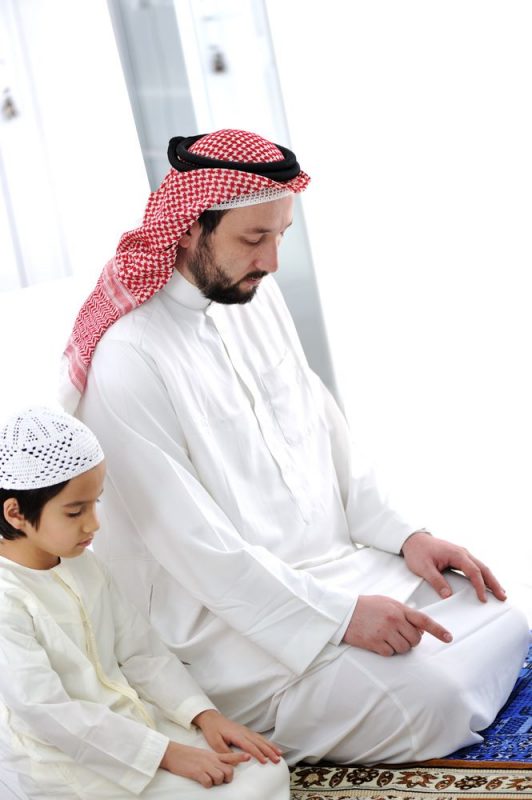
When parenting teens, it is so important to spend time with them and build that connection. This can be done in so many different ways
Circles (Halaqa)
Go to a halaqa with your children and then discuss the topic with them afterwards. You could make it fun by coming up with a Q & A-game or even a board game! But the main idea is to connect with your children.
Cooking session
Majority of times women are doing the cooking, often they will get their sons/daughters involved. But maybe as a father you could get involved in a cooking day and have your kids help you.
Cycling/football can be fun
Do an outdoor activity where you can enjoy time together as a family outside. Abdullah used to take his children bike-riding on a Sunday but he became too tired to do so after a few sessions as he was always working. This is a classic example of not giving children the time they need. All his children liked cycling so it was the perfect activity but he neglected it, preferring to work instead.
Taking them bowling
This is another fun family activity, it also builds healthy competition, but as a family, it is fun and children are more like to connect with you if you’re getting involved with them.
All of these examples of activities are so that you connect with your children and they know that you are there for them. Always initiating discipline them or telling them what to do can wear a child out. This way you are building a relationship with them.
Remember bored teenagers will look for fun somewhere else. If they have the stuff to do that is full of fun and exciting stuff they are less likely to be involved in the bad stuff.
2. Keep an eye on their friends
Note to all Muslim parents: this is important to do at an early age. One way to do this is to take them to the mosque where they will meet other Muslim children. Also, maybe become friends with the parents of the children they hang with. If this basis is created from a young age it is easier to keep control of the situation.
They could even open up a youth group. Not only will they make friends this way, but they will also learn leadership skills. It doesn’t have to be voluntary, they can be rewarded via money for a successful group and this way they will be introduced to the business world but in a halal environment.
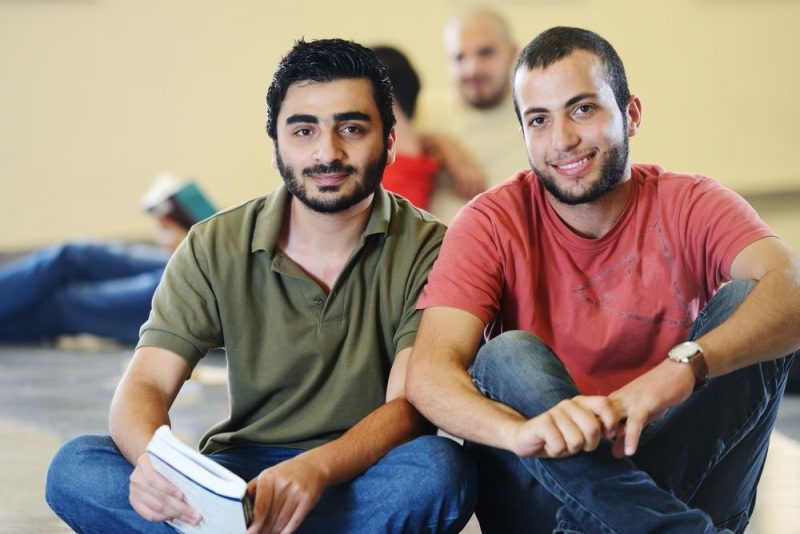
The important thing is if you realise your child is hanging with the wrong crew deal with it delicately. Start giving more time to your children and get involved in different fun activities together. This will reduce the time they spend with the wrong company.
3. Spend less time working!
This one is so important. It is better to have one job, fewer luxuries, clothes and just one home and spend more time with family. It cannot be stressed enough, money gets you nowhere. More time with family will always trump having materialistic things. All you are doing buy constantly working and buying things and getting more homes is teaching your children the wrong values…if you’re instilling any as you are never there for them. It’s so sad to see parents think they are making a future for their children when all they are doing is destroying it. Muslim parents really need to open up their eyes before its too late for their children!
4. Involve them with things
Give them responsibilities around the home and make them a part of the family. Often with teenagers, they will have to be pushed to do the work. In Asim’s case, responsibility has always been instilled into him. However, getting him to pick up after himself etc became difficult once he hit 14. He wasn’t allowed to go out, his dad wasn’t spending time with him. He was always being pushed to study or he would end up playing games. Eventually, he just became more and more rebellious. Only the mother was around to discipline or spend time with him, whilst the father was off working. When his dad would come home, he wouldn’t deal with the problem but discipline Asim. Discipline in itself is necessary, but if you’re not getting to the root of the problem, it will eventually become ineffective. Abdullah should have sat down with his son, spent time with him. It would take weeks for his son to open up, but if he saw his dad was around eventually they could have come to a solution together. instead, Abdullah was busy working and Asim started seeking attention from boys who had already gone down the wrong path.
5. Accepting that you can be wrong too
It’s strange, but Muslim parents seem to have forgotten that they were teens once as well. Going back to the Asim’s case (and you must be getting tired of it by now) Abdullah had a rough childhood himself but his parents were always there for him. Even when he did something really bad. He would get in trouble but he always knew they had his back. Maybe too much. So he decided to take a different approach with Asim and become strict. Demean him in-front of his friends, constantly belittle him in front of people, tell him off for not praying and the few times he ran away from home, not care because he would come home once he started starving. Otherwise, he would get the wrong message that they are always there for him. He needs to see the big bad world.
What’s wrong with this scenario? Yes, he might potentially come to his senses. But it’s more likely that he will completely isolate himself from his family. Enforcing rules, dictating orders and establishing discipline can work and is a necessary part of good parenting. But along with this, you need to befriend your children, be a role model for them. It’s important as parents to reflect on your actions too and see where you are going wrong. This could help you see how it is negatively affecting your child as well.
Remember the mistakes you made when you were young. It’s easy to hide your mistakes from your children, but it is Allah that protects us from sins. But this should arm you with the knowledge to help your child and not pretend like you were the best person ever and know the answer to everything.
What kind of parent are you?
1. Control Freak Parent
- You need to control your children for their good.
- You punish or reward according to their behaviour – this can be as simple as grounding or as bad as abusing them when you don’t approve of their behaviour. Alternatively giving them money or even taking them on a holiday when you like their behaviour.
Benefits
- Children listen for a certain period.
- The child may potentially change his/her attitude.
Problems with this approach:
- A child learns to manipulate eventually.
- Only contributes if there is a reward attractive enough for the kid.
- Rebels/or complies depending on how it suits him.
- Very disrespectful to teenagers.
- Extremely ineffective as a form of long term parenting.
- The child may develop cycle where either he always wants approval or always rejects it.
What should be done?
Parents need to control the behaviour of the child but this should always be balanced with understanding and care. At times children need help in being guided and not being told off or punished.
2. Molly-Coddler/The Rescuer

- You let your children run all over you.
- You don’t know how to say NO.
Benefits:
- A child may feel secure.
- May feel loved.
- Can trust parents to help them.
- Feel protected.
Disadvantages
- Children develop the habit of expecting things from parents and others and see this as love.
- Develop a love for “things” rather than people.
- Think they need taking care of and feel inadequate in controlling their situation.
- Become self-centred.
- May start believing parents “owe them”.
What should be done?
Sometimes children need to learn the consequences of their actions. E.g If a child wants a toy and you explain to her that she can’t have it, she screams the place down it should be a firm no. By saying yes you’re enabling the behaviour.
3. Neglectful Parent
- You are never there and are always busy doing something else, it might be work, browsing the phone or it might be watching TV.
- You just ignore the child. Often when the child does something wrong, you ignore it hoping it will get brushed under the rug or sort itself out.
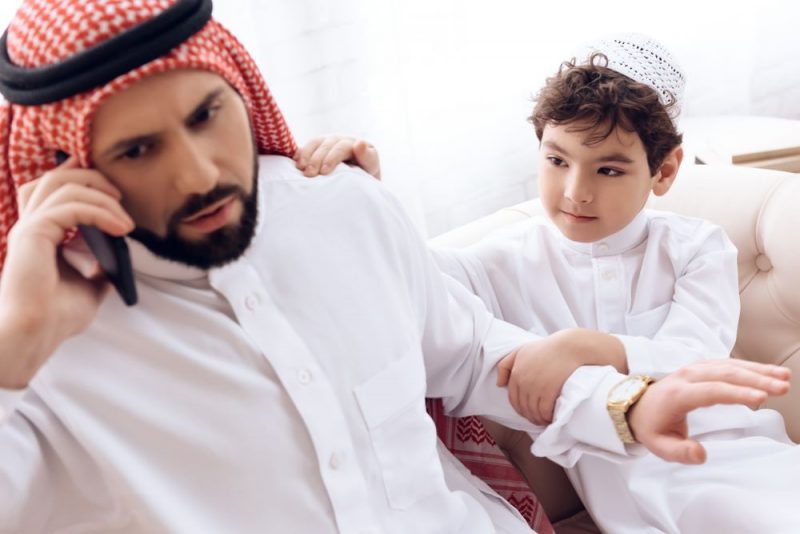
Benefits
- None to be seen!
Disadvantages
- A child feels like you don’t love him.
- May give up or look elsewhere to fit in (this could be a good or very bad thing!)
- May start to find ways to make you like him/her.
- Can be as bad as taking care of younger siblings as well as the parent.
What should be done?
Be respectful and in touch with your children. Learn to improve and control your behaviour and this could go onto help the child. If you realise your brushing things away, change that and you will begin to slowly see a change in the child.
4. Kind and firm parenting
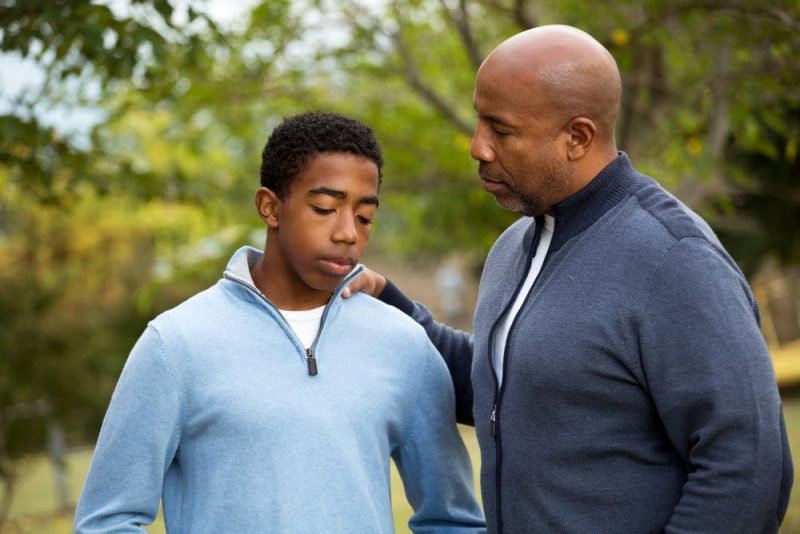
(the best of the lot and if your this one you nailed it!…..just be honest with yourself)
- This type is responsible and takes a midway path on how to deal with children.
- Parents are willing to listen to their children, see their faults and come to an understanding
Benefits
- Teach children to get the freedom they need to show a sense of responsibility.
- The teenager learns to be respectful.
- Teaching communication and respect to your child via actions ensures lifetime skills are being developed in the child.
- When the child makes a mistake you help him to realise that this is his opportunity to improve himself.
- Teaching a child to be accountable for their actions, the consequences of their action and how they can learn from them without shouting, belittling or causing them physical or emotional harm.
Disadvantages
- None!
What can be done?
Nothing. No parent is ever in this section, usually, most are in a combination of the first 3. You need to be honest with yourself and know which category/categories you fall into. This will allow you to improve yourself first and help your child accordingly. Once you realise where you are going wrong you can go onto develop yourself and your child so that they have a better future.
We hope this article has been helpful. The above scenario is something that is happening in a lot of households. Following the quiz, Abdullah would fall within 1 and 3. That is not to say that he does not love his son or his deliberately neglectful. But he’s now fallen into a cycle where he believes himself to be right. By taking the stance that he is right, he will not solve issues.
We hope you can get a better insight and help your child to become an upstanding adult and In Shah Allah, as Muslim parents, you can improve on your weaknesses.
Finally, please don’t forget to make dua and lots of it. Only Allah guides us to the straight math, praying for your teenager, especially in front of him will show them how much you love and care for them. But do it in private as well, In Shah Allah, your dua will be accepted.
Please let us know of your tips and tricks regarding Muslim parenting too. If you have interesting experiences and scenarios of how you turned things around, please share them with us so we can inshaAllah share them with a wider community for everyone’s benefit!


